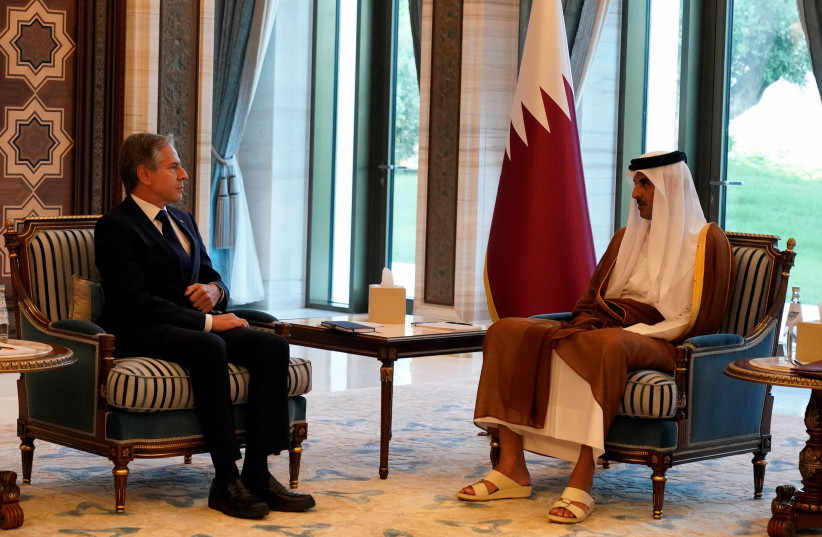Recently, the Qatari Foreign Ministry denounced Prime Minister Benjamin Netanyahu’s call for Doha to increase pressure on Hamas. In a meeting held in January with hostage families, Netanyahu was quoted as saying that Qatar, in a sense, is “more problematic than the UN and the Red Cross.”
Admittedly, in pursuit of quiet in Gaza, Israel turned a blind eye to the risks entailed in the cooperation with Qatar being a major sponsor of Hamas. Now however, after the revelation of this colossal mistake, it would be folly to continue on the same path in the attempt to broker a hostage deal. The same is true with regard to Qatar’s potential involvement in the “day after” scenario.
These days as conditions for another hostage deal materialize, Israel should rally the support of its Western allies and make it clear to Qatar that it must use all the tools at its disposal to secure the release of the hostages and that unwillingness to do so will have serious consequences.
Israel must also act more assertively to show the international community that Qatari support for extremist groups is a threat not only to Israel, as the events of October 7 demonstrated, but also to the United States and Europe. As is commonly known, for many years Qatar has been nurturing extremist Islamist groups, promoting jihadist propaganda on its state-owned news network, Al-Jazeera, and fostering its ties with Iran, the greatest threat in the Middle East.
Less well-known is the detrimental influence that Qatari “soft” power wields in Western societies. Qatar has penetrated deep into American higher educational institutions and its extensive funding has gone hand in hand with the rise of antisemitic rhetoric in US elite universities.

It turns out that even its investments in seemingly humanitarian projects among Muslim communities in Europe are tainted with an agenda to promote a separatist Islamic identity. Evidence also suggests Qatar’s dubious involvement in the legislative processes of the European Parliament, and several bribery scandals have been linked to it.
The West must stand up to Qatar
Considering the above, Western countries must send a clear message to Qatar that it cannot reap the benefits of partnership with the West while simultaneously supporting radical Islamism, whether directly or indirectly. As long as Hamas offices in Doha remain open, there is no justification for praising Qatar’s mediation efforts either. Instead, a more assertive approach towards Doha is needed, demanding that it fully exert its influence on Hamas to provide evidence of the medical condition of the hostages and expedite their release.
To achieve this goal, Israel, the US, and Europe should make a combined effort to illustrate the consequences on Qatar if its behavior doesn’t change.
The United States should condition the upgrading of security cooperation with Qatar, including future arms deals, on Qatar completely cutting ties with terrorist organizations, expelling Hamas leaders, and enforcing American sanctions in full. Qatar should also be warned that its unwillingness to abandon its support for terror and increase pressure on Hamas could result in freezing Qatari assets, limiting its airlines’ airspace, and facilitating lawsuits by American terror victims against it. If Qatar continues its support for terror, the US should consider downgrading its status from an ally to a state sponsor of terrorism.
In addition, European countries should use the recent strengthening of economic ties with Qatar as leverage against it until substantial progress is made on the issue of the hostages.
Qatar needs to understand that it is replaceable.
Israel must be prepared to “lose” Qatar as a central player in negotiating a hostage deal while seeking alternatives.
It is not unthinkable that Egypt could play a more central role in the mediation efforts, alongside assistance from European countries that have served as mediators in the past, such as Germany.
The time has come to replace Western tolerance towards Doha with a more hardline stance. Only then will it be possible to put an end to Qatar’s dangerous double game.
The writer is a researcher at the Misgav Institute for National Security and Zionist Strategy. The opinions expressed in Misgav Institute publications are those of the authors alone.
